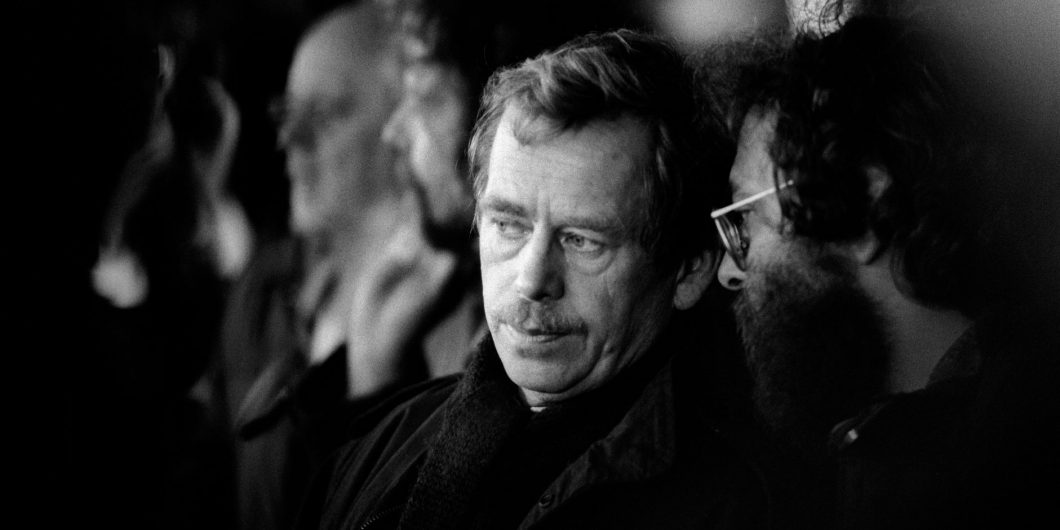One has to conclude that regarding Jefferson’s affinity to Islam and his possible inspiration from the Qur’an, there is no there there.
1989 and the Persistence of Ideology
Thank you to Law and Liberty and to Professor Mahoney for marking this glorious anniversary. I am in full agreement with Mahoney that the events of 1989 were most fundamentally a revolt against enforced participation in ideological lies. He provides an eloquent account of that “anti-ideological revolution”—a message also delivered in that year and some of the preceding ones by figures like Václav Havel, Aleksandr Solzhenitsyn, and Pope John Paul II. I have two points to make in response to Mahoney’s insightful essay. First, I will reflect briefly on the peculiar moral deformation the human person undergoes in the midst of an ideological regime. This will allow me to make a suggestion about why the promise of 1989 seems unfulfilled. Second, I wish to amplify Mahoney’s argument about the so-called “end of history” with reference to China.
It is given to human beings to say what we think. Saying things usually helps us think about things more clearly. Further, our thoughts and speech inform our actions—these actions then become sources of reflection in themselves. Herein lies the basis of human freedom. According to the totalitarians, however, our thinking is wholly determined by our membership in a class (whether that be racial or socio-economic). Our speech is not really evidence of our freedom, but only a reflection of certain conditions for which we are not responsible. In the Marxist formulation, being precedes consciousness. Once social and political conditions are transformed, all can be made to think correctly—and if they can’t, they can be safely discarded and left in the dustbin of history.
The totalitarian experiments never achieved anything resembling what they promised. And this fact was visible to all. These failures did not deter these social and political engineers from their goal—and they still do not. They might be attributed to various causes unrelated to the political project itself: a surprisingly recalcitrant population filled with enemies; an implacable enemy in the West; or the legacies of the bourgeois era. Whatever the cause, the totalitarians remained undeterred throughout the century and insisted on total ideological conformity in speech and deed. This meant that one’s personal appraisal of the meaning of events could very rarely be indulged without fear. Indeed, ideological speech is the very opposite of personal speech: it is wooden, predictable, empty, abstract, and uniform. Everyone knew the proper phrases and the necessary acts of conformity. And one grew so accustomed to these adaptations that they almost became second nature. One could safely assume that nobody’s speech was congruent with their thoughts. One could also safely assume that any “official” statements or information bore little correspondence to reality. Hence it is not surprising, to quote Hannah Arendt, that “the experience of a trembling wobbling motion of everything we rely on for our sense of direction and reality is among the most common and vivid experiences of men under totalitarian rule.”
Elsewhere I have described the resulting phenomenon as a “retreat from personhood.” What I mean is that ideological regimes tend to deform an individual’s otherwise normal inclination and capacity to think and act in ways that identify moral goods or evils in the course of everyday life. The ideological realm is where moral decision-making is outsourced. But since totalitarian subjects increasingly saw and experienced this ideological realm as an empty place—by the end really believing in communism was as dangerous as not believing—all that was left was securing one’s own good understood in the narrowest, most materialistic sense.
So what I take Bénéton’s phrase “living-in-truth is a requirement of the natural law” to mean is the recovery of personhood—the rediscovery of human beings as moral agents whose ethical longings are both articulated by those agents and respected by other agents. To take ourselves seriously as moral agents means to speak clearly and honestly—and to be open to the speech of others. If today it seems that our politics don’t measure up to the promises of 1989, I would suggest it has something to do with our not yet having put thought and speech and deed back together in proper proportion. Even though our speech might not be ideological in the pre-1989 sense, it is also often neither rooted in nor an invitation to thought. Our speech is often merely a kind of display—performative—and supposedly rooted in some sort of identity. Thus partisans of this sort of speech say that words can in fact be violence—and they seem themselves to use speech as a kind of deed. The goal is to incite a response—preferably a similar kind of speech or even an action which will confirm in the minds of observers that these are exactly the sort of people we said they were. This sort of speech is not informed by thought nor does it invite dialogue or enable deliberation. If ideological speech fails because it attempts to solve the political question once and for all (it is hyper-political or totalizing speech), then this emotive, “speech-as-deed” speech fails because it is sub-political.
Mahoney’s point about the limits of the end of history thesis is also well-taken. I would add that 1989 cannot be the end of the 200 year cycle of total revolution inaugurated by the Jacobins. Tiananmen Square (June 4, the same day as the first round of parliamentary elections in Poland) must be factored into the story of 1989 too. So even in that sense, history marches on. For the Leninists in Beijing have no plans of ending their experiment any time soon. Twenty years ago political science journals were running issues devoted to the question, when will China democratize? Deng Xiaoping’s economic reforms were thought to have inaugurated a process that would eventually lead to political liberalization. Now it seems more sensible to liken those reforms to Lenin’s New Economic Policy. More far-reaching to be sure, but surely not touching the core ideological and structural elements of the totalitarian system.
Just over a year ago, I published a series of posts for Law & Liberty on Anne Applebaum’s fine book Red Famine and some earlier literature on the subject of the terror famine of the 1930s. In one post, I told the story of the journalist Gareth Jones who published a series of articles in the Manchester Guardian and other outlets based on his own travels through northeast Ukraine. He was dismissed by the likes of Walter Duranty and other useful idiots. How shocking and crazy it seemed that this eyewitness was dismissed with such ease.
Massive repression driven by ideological fanaticism is part of the 21st century too. On September 5, 2018 my friend Rushan Abbas spoke at the Hudson Institute about the situation in Xinjiang province in Western China where somewhere in the neighborhood of 1.5 to 2 million Uyghurs are being held in re-education camps. Five days later her sister Gulshan, a retired medical doctor, disappeared and has not been heard from since. China scholar Adrian Zenz calls this massive internment campaign an “experiment for reproducing a totalitarian ideology” and sees it as an “upgraded version of [Mao’s] Cultural Revolution.” The Chinese themselves use terms like “transformation through education” and “vocational training” for public consumption. But in an extraordinary series of documents published in the New York Times in mid-November, Party members gave instructions to one another about how to speak with relatives of those interned in the camps. The language is remarkable in how it seeks to justify this policy of extra-judicial internment. The ideologically healthy social body must remain free of contagions like “separatism” and “religious extremism.” Using language that Lenin would surely appreciate, one finds phrases like “infectious disease,” “eradicate viruses,” and “malignant tumor.” The inhabitants of the camps are merely undergoing an “enclosed, isolated treatment” to ensure that such viruses don’t spread. Not only does China have totalitarian ambitions, it also has technological capacities that would make its 20th century forbears shake with jealousy.
So as we remember the anti-totalitarian spirit of 1989, let us also recall that the spirit of Lenin is alive and well in China.



